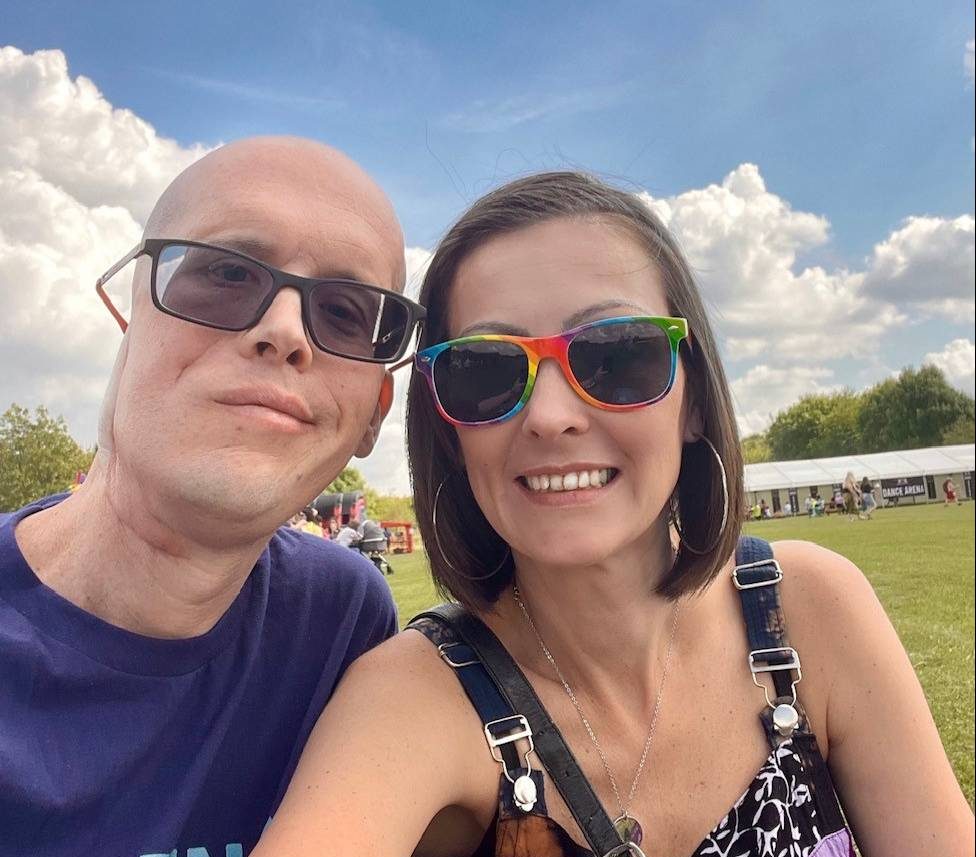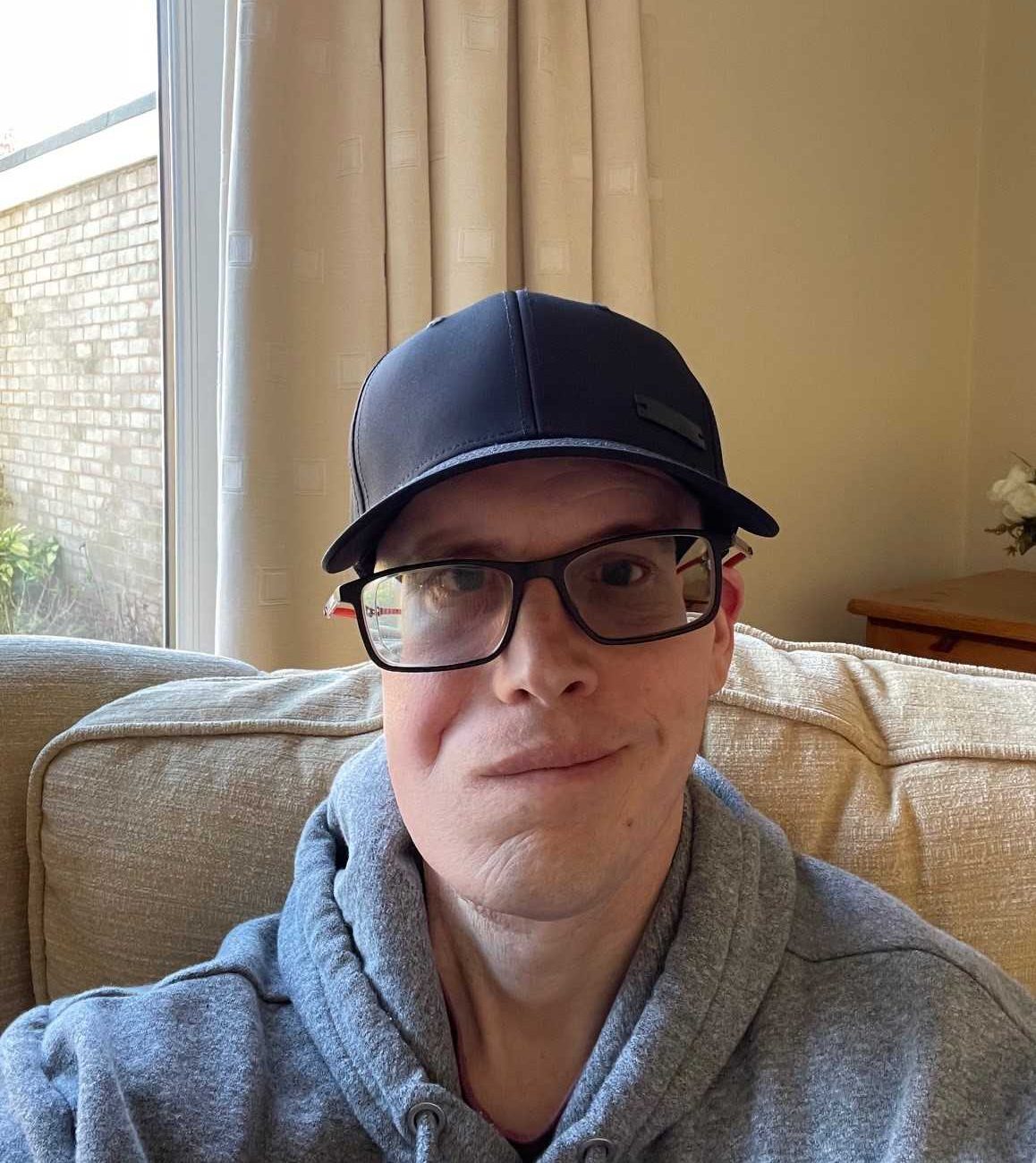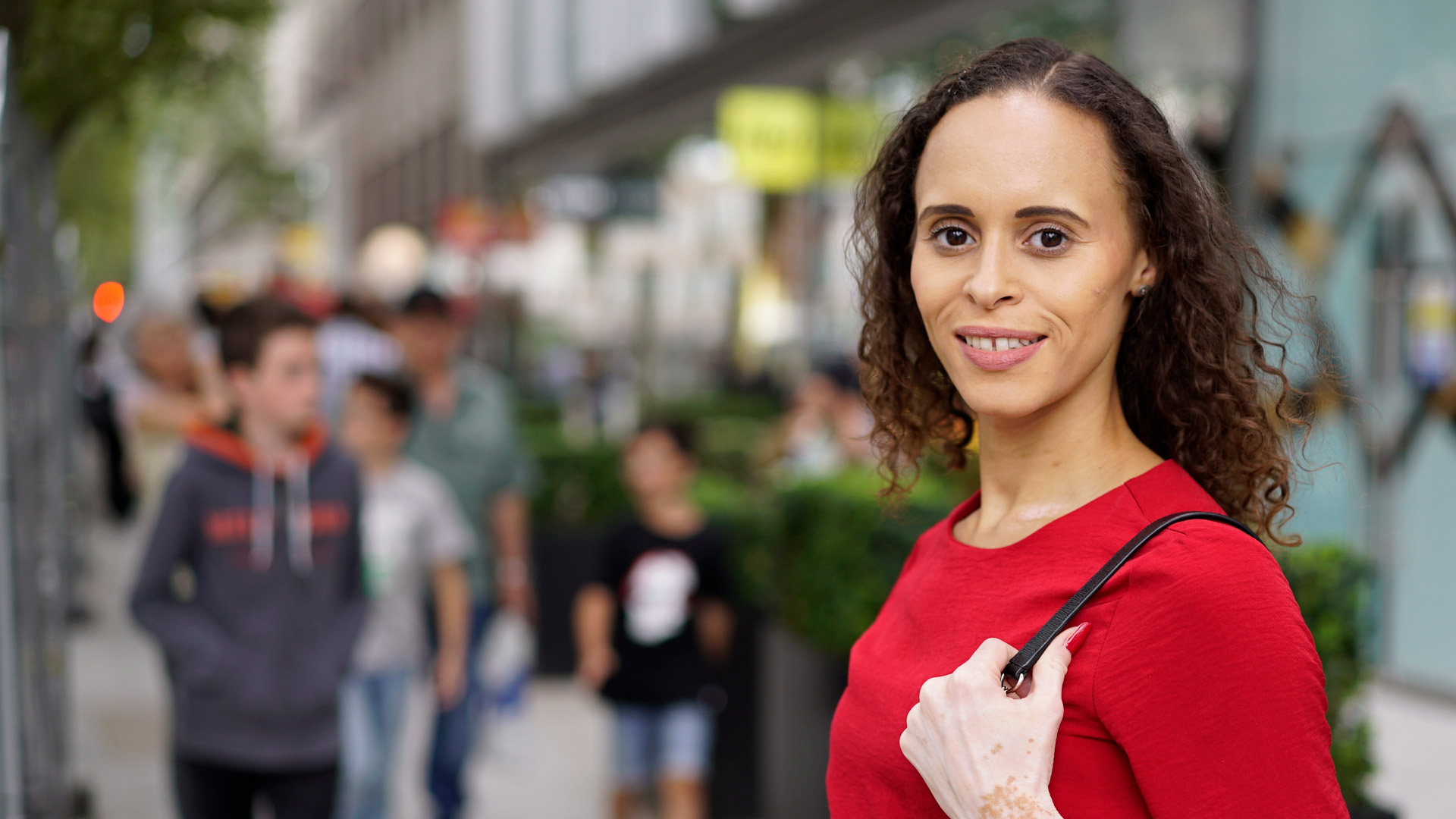I’m Dave – I’m 43 years old and I live in Staffordshire.
I had my whole right ear removed in December 2021, due to cancer. As a result, I’m deaf on one side, I have some facial paralysis and I’ve got a patch of skin on my head that’s a different colour to the rest of my head, after skin from my leg was used to rebuild the affected area.
When I was receiving cancer treatment, my mind wasn’t focused on how I would look once it was over. My mind was set on beating the cancer – no matter what it took.
I remember the day I found out I would lose my ear, in a busy hospital room with healthcare professionals surrounding me. When a doctor told me he couldn’t save my ear, I remember saying “okay, that’s fine.” A concerned nurse turned to me to ask: “Dave. Do you understand the seriousness of what’s going on?” But to me, it was a no-brainer. Lose my ear but have a fighting chance of surviving. I remember thinking: “As long as my wife still loves me for who I am, let’s crack on.”
It made me think – why was I getting upset? And concerning myself over what they thought of me when they’d completely forgotten me within seconds.
After my treatment, I started to feel self-conscious and aware of my scars. I didn’t enjoy going out. I’d notice people staring at me and paying attention to the way I looked. I felt like I was being treated differently to everyone else.
I started to look for support groups where people could relate to my experiences. I’d joined a few cancer-related support groups before, but I didn’t feel they fit with what I was looking for. My cancer is extremely rare, so I felt a disconnect between other people in the group who were sharing their experiences of the more common forms of cancer. I also didn’t want to talk about cancer-specific problems. I wanted to talk about what was going on in my head.
I came across the Changing Faces website and discovered that they ran online group support (known as Peer Group Chat) for people with visible differences. I signed up with an open mind.

The online group support I received from Changing Faces was fantastic. Each week, I joined a wellbeing practitioner and other people with a diverse range of visible differences, including skin conditions, birthmarks, scars and craniofacial conditions.
Although at the beginning we were a bit shy and cautious around each other, by the end of the programme we were talking to each other as if we’d known each other for years. It was really nice.
Despite our differences, we were connected through our shared experiences. We’d all faced staring and negative reactions from others. We all had days where we struggled with confidence and self-esteem.
To meet people who understood how I was feeling was a breath of fresh air. I could say to the group: “I went out yesterday and got stared at and it really upset me.” And there would instantly be four or five others showing solidarity with me – offering advice or a simple acknowledgement like “Yes, that’s happened to me too.”
I also picked up some fantastic tips from the practitioner and the group on topics like going back to work, or how friends and family might react to your newly acquired difference.
I’ve overcome a lot in the last two years and each battle has been different to the previous one. I don’t care what people think as much.
A group member gave some advice about asking someone to come with you if you feel overwhelmed or less confident about going out in public. I never thought of that. Since the sessions, I’ve been doing my weekly shop with my mum and sister, and we have a nice lunch afterwards. Having someone act as a support buddy who is happy to give you a kick up the backside with a “get on with it” when needed is extremely helpful and necessary sometimes.
I’ve reached some interesting turning points in my journey towards accepting my new appearance. Once as I was sat in a café, a child, aged 10 or 12 years old, kept staring at me. His mum came over to apologise and we ended up talking for quite a while. That experience shifted my thoughts a bit. You see, children don’t have a filter and are curious. Their curiosity comes from an innocent place and I’ve found that I enjoy and feel confident in answering their questions – you know where you are at least! I like to think that I’m raising awareness of visible differences to the next generation, who will hopefully grow up more accepting of differences.
A second turning point came about as I was going up the escalators of a busy shopping mall. It was upsetting to see that those traveling down the escalators – in the opposite direction, were all staring at me as I went past. Person after person, for the minute-long journey were doing double takes and I felt eyes on me constantly. That is, until I turned around, and noticed that the people who had been staring at me seconds before had already forgotten me and were going about their day – onto the next thing. It made me think – why was I getting upset? And concerning myself over what they thought of me when they’d completely forgotten me within seconds. Since then, I feel more confident to meet a stranger’s stare with a smile and put it out of my mind in the same instance that I know I’m out of theirs.
I could say to the group: “I went out yesterday and got stared at and it really upset me.” And there would instantly be four or five others showing solidarity with me – offering advice or a simple acknowledgement like “Yes, that’s happened to me too.”
Today, I still feel anxious about meeting friends who have known me before my appearance changed and meeting others for the first time. Recently, for example, I had a two-hour in-person work meeting. As I only knew one person out of the group, I was worried that other colleagues would be preoccupied with my appearance. I decided to address the situation straight away. A simple introduction: “I’m Dave, I’ve had cancer and that’s what’s caused my facial difference. If you would like to ask me any questions about it, I’m happy to answer them.” I’ve found since then, that’s my preferred way of meeting people and addressing curiosity.
There are positives that have come from acquiring a visible difference. I have a new fondness and understanding for other people with visible differences and disabilities. I feel like I can relate to people who are different more, as if we’re all part of the same club. I have the utmost time and respect for these people and I enjoy talking and connecting with others who don’t fit society’s expectations of “normal.”
It’s also made me a stronger, more resilient person. I’ve overcome a lot in the last two years and each battle has been different to the previous one. I don’t care what people think as much.
To anyone still searching for their spark of confidence: I’d recommend they get in touch with Changing Faces. Especially the online support group. Also, lean on your support system. My wife has been there every step of the way with me. She’s an end-of-life nurse so is a great mix of pragmatic and empathetic. I’ve leaned on her and we’ve taken on each challenge together, as a team.

